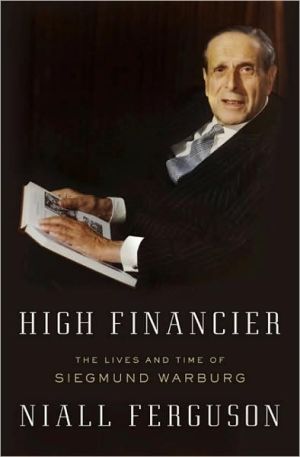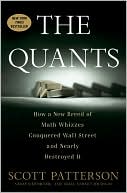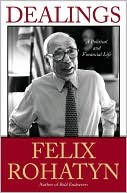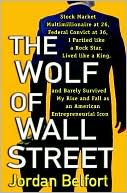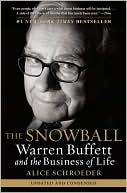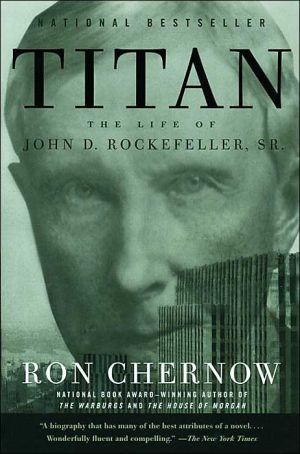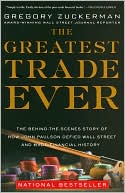High Financier: The Lives and Time of Siegmund Warburg
Bestselling author Niall Ferguson reveals for the first time the true extent of Siegmund Warburg's influence-and the lessons we can learn in a time of crisis from the last of the high financiers.\ "Success from the financial and from the prestige point of view . . . is not enough; what matters even more is . . . adherence to high moral and aesthetic standards."\ -Siegmund Warburg, 1959\ In this pathbreaking new biography, based on more than ten thousand hitherto unavailable letters and diary...
Search in google:
Bestselling author Niall Ferguson reveals for the first time the true extent of Siegmund Warburg's influence—-and the lessons we can learn in a time of crisis from the last of the high financiers. Publishers Weekly Siegmund Warburg (1902-1982), scion of a Jewish banking dynasty, fled Nazi Germany to London, where he became a leading banker and an informal economic adviser to prime ministers—but his importance doesn’t shine through this unfocused biography. Financial historian Ferguson (The Ascent of Money) styles him a financial innovator (he engineered Britain’s first hostile takeover), a pioneer of European economic integration (he helped invent the Eurobond), a “prophet of globalization,” a paragon of fiscal rectitude whose principles could have helped us avoid the current economic mess, and a deep thinker about international affairs. Unfortunately, Ferguson doesn’t make a compelling argument for his subject’s significance. Laymen will find his sketchy treatment of Warburg’s feats of “high finance” rather opaque and his case for Warburg the humanist and intellectual weak (and undermined by his subject’s obsession with handwriting analysis). Ferguson uses Warburg’s life as a window onto European unification and Britain’s postwar economic malaise, but his account, which is constantly distracted by deal making and office politics at Warburg’s banking partnership, is too unsystematic to do these topics justice. The view from Warburg’s lofty perch doesn’t make for a discerning perspective on the world around him. (July)
List of Illustrations\ Acknowledgements\ Preface\ 1 Siegmund and his Cousins 1\ 2 The First World Revolution 28\ 3 The Degeneration of a Republic 51\ 4 Exile 71\ 5 Trading against the Enemy 98\ 6 Restoring the Name 127\ 7 Atlantic Unions 158\ 8 The Financial Roots of European Integration 201\ 9 The Rhythm of Perfection 233\ 10 Britain's Financial Physician 275\ 11 The Malaise in our Western World 315\ 12 Expensive Lessons 352\ 13 The Education of an Adult 380\ Appendix: Graphology 417\ Notes 422\ Bibliography 508\ Index 522
\ Publishers WeeklySiegmund Warburg (1902-1982), scion of a Jewish banking dynasty, fled Nazi Germany to London, where he became a leading banker and an informal economic adviser to prime ministers—but his importance doesn’t shine through this unfocused biography. Financial historian Ferguson (The Ascent of Money) styles him a financial innovator (he engineered Britain’s first hostile takeover), a pioneer of European economic integration (he helped invent the Eurobond), a “prophet of globalization,” a paragon of fiscal rectitude whose principles could have helped us avoid the current economic mess, and a deep thinker about international affairs. Unfortunately, Ferguson doesn’t make a compelling argument for his subject’s significance. Laymen will find his sketchy treatment of Warburg’s feats of “high finance” rather opaque and his case for Warburg the humanist and intellectual weak (and undermined by his subject’s obsession with handwriting analysis). Ferguson uses Warburg’s life as a window onto European unification and Britain’s postwar economic malaise, but his account, which is constantly distracted by deal making and office politics at Warburg’s banking partnership, is too unsystematic to do these topics justice. The view from Warburg’s lofty perch doesn’t make for a discerning perspective on the world around him. (July)\ \ \ \ \ Publishers WeeklySiegmund Warburg (1902–1982), scion of a Jewish banking dynasty, fled Nazi Germany to London, where he became a leading banker and an informal economic adviser to prime ministers—but his importance doesn’t shine through this unfocused biography. Financial historian Ferguson (The Ascent of Money) styles him a financial innovator (he engineered Britain’s first hostile takeover), a pioneer of European economic integration (he helped invent the Eurobond), a “prophet of globalization,” a paragon of fiscal rectitude whose principles could have helped us avoid the current economic mess, and a deep thinker about international affairs. Unfortunately, Ferguson doesn’t make a compelling argument for his subject’s significance. Laymen will find his sketchy treatment of Warburg’s feats of “high finance” rather opaque and his case for Warburg the humanist and intellectual weak (and undermined by his subject’s obsession with handwriting analysis). Ferguson uses Warburg’s life as a window onto European unification and Britain’s postwar economic malaise, but his account, which is constantly distracted by deal making and office politics at Warburg’s banking partnership, is too unsystematic to do these topics justice. The view from Warburg’s lofty perch doesn’t make for a discerning perspective on the world around him. (July)\ \ \ Library JournalFor his latest subject, Ferguson (history, Harvard Univ.; William Ziegler Professor, Harvard Business Sch.; The Ascent of Money: A Financial History of the World) has chosen a notable if lesser-known figure of 20th-century international finance, a man no longer in the shadow of the Morgans and the Rothschilds thanks to this superlative biography. The Warburg family ran a successful merchant bank in Hamburg, Germany, until the rise of Hitler. Warburg was forced to flee to England, and Ferguson's research shows how his later firm, S.G. Warburg, became one of London's financial power centers, selling the early equivalents of Eurobonds and pioneering such now-familiar strategies as the "hostile takeover" for corporate clients. Warburg's story demands a good storyteller, and Ferguson fits the bill. One of his more interesting revelations is that Warburg was a strong and early proponent of European integration. The author also emphasizes his subject's transparency with clients and scrupulous work ethic, refreshing qualities sorely missed in today's corporate finance. Warburg's firm was effectively liquidated after his death, thus ending the remarkable Warburg saga. VERDICT Ferguson has written a most engrossing and edifying tale of high finance. Readers interested in financial and general 20th-century British history will find much of value here. Highly recommended.—Richard Drezen, Brooklyn, NY\ \ \ \ \ Kirkus ReviewsEconomic historian Ferguson (History/Harvard Univ.; The Ascent of Money, 2008, etc.) turns to the last of the high financiers of old, before the hedge-funders of Wall Street took over the world. Siegmund Warburg (1902-1982), writes the author, was on the face "no more or less than a very successful London banker." Yet he was much more than that. Having chronicled the Rothschilds in a wide-ranging set of books, Ferguson finds Warburg a kindred figure as a German Jew who immigrated to England and built a fortune "with a combination of intelligence and industry," building a powerful merchant bank from the ground up and using it to reshape the financial practices of the time. Like the Rothschilds, too, Warburg used his fortune to expand into other arenas, acquired considerable political influence and became a prominent philanthropist, funding many good-works organizations in Great Britain and Israel. Warburg was an enthusiastic citizen of both nations, but also, unlike many of his generation, was a "committed Atlanticist" who welcomed the integration of the European and North American economies, spending as much of his time in New York City as in the great financial capitals of Europe. Apart from that, Warburg was a patron of the arts and culture, a bibliophile and a scholar who remarked that had necessity not pushed him into the business of making a living, he would have happily lived out his days as a poor intellectual-though it certainly helped that his family had been in the banking business since the Napoleonic Wars. For all his success in the world of haute banque, however, Warburg enjoyed a type of career that would be replaced by a different kind of banking in the go-go days of deregulation and speculation. In the end, writes Ferguson, the house he built was sold for pence on the pound. And with that-and herein lies the takeaway of this valuable book-every ounce of integrity seemed to disappear from the world of high finance. Readable, accessible and not a little nostalgic.\ \ \ \ \ From the Publisher"Ferguson brings great authority to this account.... [He] is a talented writer, capable of grace and insight, but it is his ability as a historian that shows most strongly in High Financier. —-Washington Post\ \
